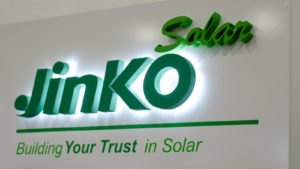Back in May, sitting U.S. President Joe Biden announced he would be quadrupling tariffs on Chinese solar imports among other technologies and commodities like electric vehicles, batteries and steel. The move signals an increasingly cooling relationship between the world’s first and second largest economies but has also underlined a group of Chinese solar stocks to sell.
This is especially true when considering the challenges the Chinese solar industry is facing due to overcapacity. That’s because for solar cells to sell at profitable rates, demand must drive their prices above the cost of production. Now Chinese solar firms are seeking the help of the Chinese government to stabilize prices, but without the U.S., the second largest consumer of technology, finding customers could be difficult.
Moreover, such an oversupply of solar cells could signal that the solar industry as a whole has saturated in China despite its massive investments in the technology over the last two decades. Thus, investors might want to keep a list of which Chinese solar stocks to sell.
JinkoSolar (JKS)

Arguably one of the most successful and prolific members of the Chinese solar industry, JinkoSolar (NYSE:JKS) will feel the coming tariffs exceptionally hard. With a tariff of 100% on its solar products, JKS will almost certainly no longer be able to compete within the U.S. clean energy sector.
Moreover, these tariffs couldn’t come at a worse time for the company, as its quarterly earnings report for Q1 2024 clues us into the broader challenges Chinese solar companies are facing. For starters, the company’s total revenues came to $3.19 billion, down 29.8% from the prior quarter and down 1.2% year-over-year (YOY). The company’s gross margins saw around a 5.4% dip YOY as well.
Now, pair these decreasing sales with the closing of the U.S. market, and it becomes obvious that JKS stock will struggle, placing it firmly among the Chinese solar stocks to sell.
Daqo New Energy (DQ)

Among the more indirectly affected Chinese solar stocks to sell Daqo New Energy (NYSE:DQ) is dropping fast as market saturation bottoms out the value of its products. That’s because DQ is one of China’s largest manufacturers of high-purity polysilicon, a critical component in photovoltaic solar cells.
Moreover, the company’s extremely high volume production business model is in jeopardy without buyers to keep its price stable. As demand for solar cells dwindles due to overcapacity, so will the profitability of DQ’s products.
Taking a look at its most recent unaudited financial earnings reports for Q1 2024 underscores these concerns. For example, revenue was down to $415 million from $710 million YOY. Even more concerning, its income has decreased by over 90% YOY to $30 million, down from $464 million. Thus, investors should be wary of holding onto or even buying the Chinese solar stock as its prospects begin to look grim.
KraneShares MSCI China Clean Technology Index ETF (KGRN)

With the overall Chinese solar industry in peril, it’s no wonder an exchange-traded fund like the KraneShares MSCI China Clean Technology Index ETF (NYSEARCA:KGRN) makes this list. The fund is primarily distributed across 10 holdings represented by electric vehicle, clean energy and solar companies.
Ironically, its heavy investments in Chinese EV companies add an extra layer of risk as demand for EVs falters and U.S. tariffs block them from the American auto market. Thus, with so many avenues for failure, it’s no wonder this ETF has resulted in negative returns for its investors since its inception in October 2017.
Furthermore, the controlled nature of the Chinese economy does not allow for companies to prosper in such a way that is profitable to U.S. investors. The overall failure of the KGRN ETF underscores that no matter the economic initiatives from the Chinese government, global markets cannot be forced to accept its products and quantities.
On the date of publication, Viktor Zarev did not hold (either directly or indirectly) any positions in the securities mentioned in this article. The opinions expressed in this article are those of the writer, subject to the InvestorPlace.com Publishing Guidelines.
